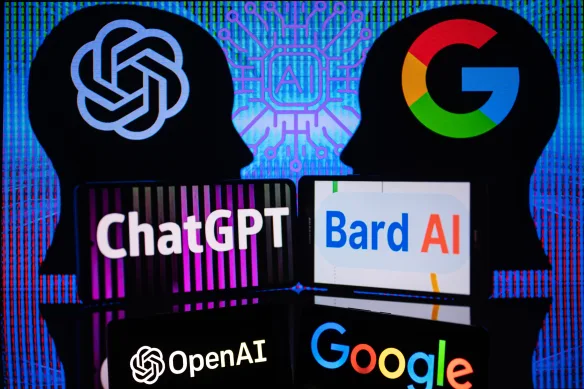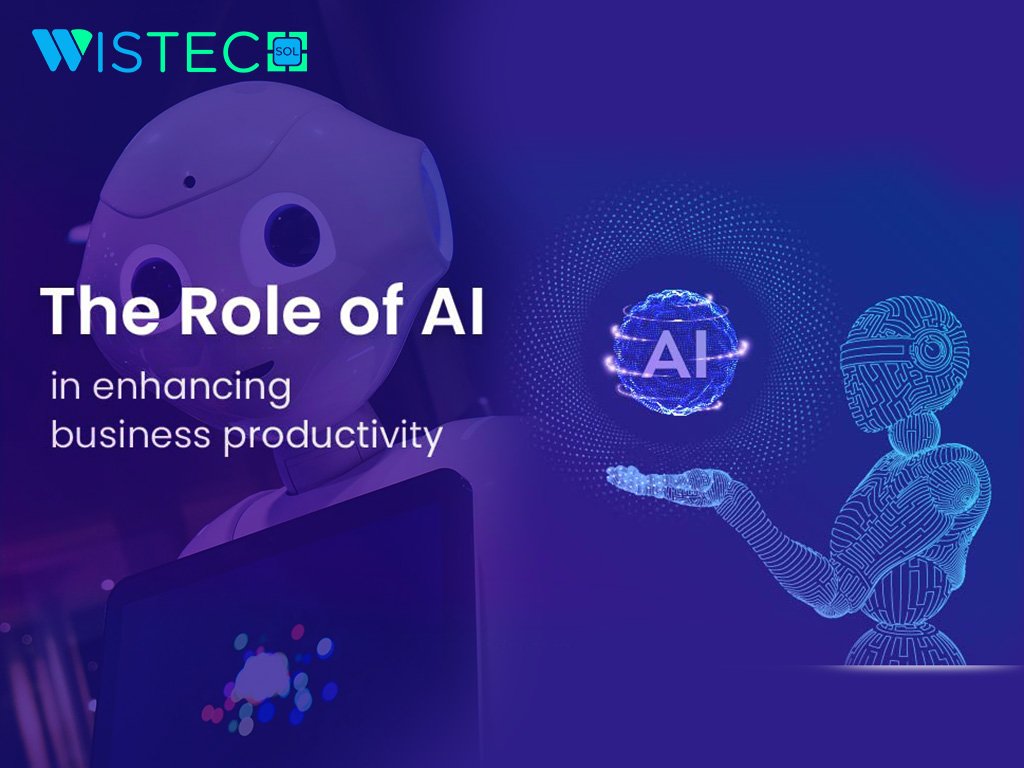No products in the cart.
Return To ShopThe Power of AI in Transforming Business Operations
In recent years, artificial intelligence (AI) has emerged as a transformative force across various industries. With its ability to analyze vast amounts of data, make intelligent decisions, and automate processes, AI is revolutionizing businesses by enhancing efficiency, decision-making, and customer experiences.
One of the key benefits of AI is its ability to streamline business operations. By automating repetitive tasks, AI frees up valuable time for employees to focus on more strategic and complex activities. For example, AI-powered chatbots can handle customer inquiries, freeing up customer service representatives to deal with more complex issues. This not only improves efficiency but also enhances the customer experience by providing quick and accurate responses.

AI also has the potential to revolutionize decision-making processes. With its advanced algorithms and data analysis capabilities, AI can analyze large volumes of data and identify patterns, trends, and insights that may not be apparent to human decision-makers. This can help businesses make more informed decisions, optimize processes, and identify new opportunities for growth.
When it comes to customer experiences, AI can play a significant role in personalization and customization. By analyzing customer data, AI can understand individual preferences, behaviours, and needs, allowing businesses to deliver personalized recommendations, offers, and experiences. This not only enhances customer satisfaction but also increases customer loyalty and retention.
Now that we understand the power of AI in transforming business operations, let’s explore some useful AI platforms and software that can benefit businesses in Africa and around the world:
1. ChatGPT by OpenAI: Revolutionizing Business Communication
In today’s fast-paced business landscape, effective communication is pivotal. ChatGPT, powered by OpenAI’s advanced language model, has emerged as a transformative tool, offering businesses a new way to interact with customers and streamline internal operations. Here’s how ChatGPT can revolutionize business communication and benefit companies across various industries:
- Enhanced Customer Support: ChatGPT can serve as a 24/7 virtual assistant, providing instant responses to customer inquiries. Whether it’s answering frequently asked questions, troubleshooting issues, or guiding customers through the sales process, ChatGPT ensures that customers receive timely and accurate assistance. This not only improves customer satisfaction but also frees up human customer support agents to handle more complex tasks.
- Personalized Marketing: ChatGPT can analyze customer data to deliver personalized marketing messages and product recommendations. By understanding individual preferences and behaviours, businesses can tailor their marketing efforts, leading to higher conversion rates and increased customer loyalty.
- Efficient Data Analysis: Businesses deal with vast amounts of data daily. ChatGPT can be employed to parse and analyze data swiftly, providing valuable insights. It can generate reports, charts, and summaries, helping organizations make data-driven decisions and gain a competitive edge.
- Streamlined Employee Training: ChatGPT can be utilized as an on-demand training assistant for employees. It can provide training materials, answer questions, and guide employees through various processes. This accelerates the onboarding process and ensures that staff members have easy access to the information they need to excel in their roles.
- Multilingual Communication: In a globalized world, businesses often need to communicate with customers and partners who speak different languages. ChatGPT’s multilingual capabilities enable seamless communication across language barriers, expanding a company’s reach and fostering international growth.
- Scalable Customer Engagement: ChatGPT can engage with multiple customers simultaneously, making it a scalable solution for businesses with high customer interaction volumes. This ensures that no customer is left waiting, enhancing overall service efficiency.
- Workflow Automation: ChatGPT can automate routine tasks and workflows. For instance, it can schedule appointments, process orders, and manage administrative tasks, reducing the burden on human employees and increasing operational efficiency.
- Real-time Decision Support: In critical decision-making situations, ChatGPT can provide real-time insights and recommendations based on available data. This feature is particularly valuable in industries where split-second decisions can impact outcomes, such as finance or healthcare.
- Cost-Efficiency: Implementing ChatGPT can lead to significant cost savings. By automating repetitive tasks and providing round-the-clock support, businesses can reduce labour costs and allocate resources more effectively.
- Competitive Advantage: Early adopters of AI-powered communication tools like ChatGPT gain a competitive advantage. They can provide superior customer experiences, optimize internal processes, and stay ahead of industry trends.
In conclusion, ChatGPT is poised to revolutionize business communication by enhancing customer support, personalizing marketing efforts, streamlining operations, and enabling efficient data analysis. Its versatility and scalability make it an asset for businesses across diverse sectors. As AI technology continues to evolve, integrating ChatGPT into business communication strategies can position companies for success in an increasingly digital and customer-centric world.
2. Google Bard: Transforming Content Creation and More
Google Bard is a large language model (LLM) chatbot developed by Google AI. It is trained on a massive dataset of text and code and can generate text, translate languages, write different kinds of creative content, and answer your questions in an informative way. Bard is still under development, but it has the potential to revolutionize the way businesses operate.
Here are some of the ways that Google Bard can benefit businesses:
- Improved customer service: Bard can be used to create chatbots that can answer customer questions, provide
- support, and resolve issues quickly and efficiently. This can free up human customer service representatives to focus on more complex tasks.
- Increased productivity: Bard can be used to automate a variety of tasks, such as generating reports, writing emails, and creating marketing materials. This can free up employees to focus on more strategic and creative work.
- Enhanced creativity and innovation: Bard can be used to generate new ideas, brainstorm solutions, and develop new products and services. This can help businesses stay ahead of the competition and meet the changing needs of their customers.
- Improved decision-making: Bard can be used to analyze data and identify trends and patterns. This can help businesses to make better decisions about everything from product development to marketing campaigns.
Here are some specific examples of how businesses can use Google Bard:
- A marketing team could use Bard to generate personalized marketing emails, social media posts, and ad copy.
- A sales team could use Bard to research leads and qualify prospects.
- A customer service team could use Bard to create chatbots that can answer customer questions and resolve issues.
- A product development team could use Bard to brainstorm new product ideas and get feedback from customers.
- A research and development team could use Bard to analyze data and identify trends and patterns.
Google Bard is still under development as of this writing, but it has the potential to revolutionize the way businesses operate. By automating tasks, generating new ideas, and helping businesses make better decisions, Bard can help businesses save time and money, improve customer service, and increase profits.
3. Microsoft Bing AI: Transforming Industries in Africa and Beyond
Microsoft Bing AI is a powerful tool that can help businesses in Africa and around the world improve their operations and increase their productivity. According to a report by the International Finance Corporation (IFC), AI technology could revolutionize a host of industries, from farming to banking to transport, and help poor countries tackle long-standing problems like poverty and joblessness, improving lives at a pace inconceivable only a decade ago.
Microsoft Bing AI provides numerous benefits for businesses, including better search results, personalized recommendations, improved customer engagement, increased productivity, and enhanced security. For instance, Bing AI can help businesses in Africa enhance their security by providing advanced threat detection and protection. Furthermore, online marketplaces that rely on AI could create millions of jobs in Africa by 2025 while dramatically expanding access to goods and services, especially in the hinterlands.
In conclusion, Bing AI is a powerful tool that can help businesses in Africa and the world improve their operations and increase their productivity. By leveraging the power of AI technology, businesses can overcome long-standing challenges and achieve sustainable growth.
4. Canva: Empowering Businesses with Creative Design
In the realm of modern business, effective visual communication is paramount. To this end, Canva has emerged as a versatile and indispensable tool, offering businesses of all sizes the means to create stunning visual content effortlessly. Its user-friendly interface and comprehensive features have made it a game-changer for businesses, empowering them to craft captivating graphics, presentations, and marketing materials. Here’s how Canva has become an invaluable asset for businesses:
- Streamlined Design Process: Canva simplifies the design process with its intuitive drag-and-drop interface. Businesses can swiftly create professional-looking graphics, social media posts, flyers, and more, reducing the need for hiring dedicated designers. This streamlined approach saves both time and resources.
- Vast Template Library: Canva boasts an extensive library of templates tailored to various business needs. From business cards to pitch decks, these templates provide a starting point for creating visually appealing materials. Businesses can easily customize these templates with their branding elements.
- Brand Consistency: Consistency in branding is crucial for businesses. Canva’s Brand Kit feature allows organizations to upload their logos, colour schemes, and fonts, ensuring that all design materials align with their brand identity. This helps in maintaining a cohesive and professional image across all communication channels.
- Accessibility: Canva is a web-based platform accessible from any device with an internet connection. This accessibility allows businesses to collaborate seamlessly, even with remote teams. Multiple team members can work on a design project simultaneously, fostering efficient workflows.
- Multimedia Integration: In addition to static graphics, Canva supports multimedia elements like videos, animations, and audio. This enables businesses to create engaging content for websites, social media, and presentations. The ability to add interactive elements enhances user engagement.
- Printing Services: Canva offers integrated printing services, allowing businesses to order physical copies of their designs directly from the platform. Whether it’s business cards, brochures, or posters, this feature simplifies the process of bringing digital designs into the physical world.
- Analytics and Collaboration: Canva provides analytics tools that help businesses track the performance of their designs, especially in digital marketing campaigns. Additionally, collaborative features enable teams to work together efficiently and gather feedback in real time.
- Cost-Effective: Canva offers both free and premium plans. While the free version provides access to many features, the paid plans unlock advanced functionalities and a broader template library. Businesses can choose a plan that suits their specific requirements and budget.
In conclusion, Canva has revolutionized the way businesses approach design and visual communication. Its user-centric approach, rich feature set, and accessibility have democratized design, making it an indispensable tool for businesses aiming to create impactful visual content. From startups to established enterprises, Canva empowers businesses to tell their stories, connect with their audiences and ultimately thrive in a visually-driven digital landscape.
5. Google BERT (Bidirectional Encoder Representations from Transformers)
Google BERT is a natural language processing algorithm that focuses on understanding the context and intent behind search queries. Businesses can benefit from BERT by optimizing their online content to match user intent better. This leads to improved search engine rankings and increased organic traffic. For businesses in Africa, effective SEO strategies incorporating BERT can help them reach a broader local and global audience.
6. Facebook Lláma: Personalized Advertising for Business Success
Facebook Lláma is an AI-powered marketing platform that specializes in personalized advertising. Businesses can leverage Lláma’s AI capabilities to create highly targeted ad campaigns. By analyzing user data and behaviours, Lláma can identify the most relevant audience segments for a business’s products or services. This results in more efficient ad spend, higher conversion rates, and improved return on investment (ROI) for advertising campaigns.
7. Amazon Web Services (AWS) AI Services: Unleashing the Power of AI for Businesses
AWS offers a suite of AI services that can benefit businesses in various ways. For example, Amazon Rekognition, an image and video analysis service, can be used for content moderation, facial recognition, and object detection. Businesses can use this service to enhance security, automate content tagging, and improve user experiences in applications. AWS Comprehend, a natural language processing service, can analyze text data for sentiment analysis, language detection, and entity recognition. This can be valuable for businesses looking to gain insights from customer reviews, social media mentions, or support tickets.
8. Microsoft Azure AI: Tailored AI Solutions for Business Excellence
Microsoft Azure AI provides a range of AI tools and services that businesses can use to build custom AI solutions. Azure Cognitive Services includes APIs for vision, speech, language, and decision-making. For example, businesses can utilize Azure’s language understanding capabilities to create chatbots for customer support or virtual assistants for improving productivity. Azure Machine Learning empowers businesses to develop and deploy machine learning models tailored to their specific needs, enabling predictive analytics, fraud detection, and more.
9. IBM Watson: The Trusted AI Companion for Business
IBM Watson is one of the most well-known AI platforms in the market today. It offers a wide range of AI-powered solutions, including natural language processing, machine learning, and data analytics. Businesses can leverage IBM Watson to automate processes, analyze unstructured data, and gain valuable insights.
10. Salesforce Einstein: Elevating Customer Relationship Management
Salesforce Einstein is an AI-powered platform specifically designed for customer relationship management (CRM). It uses AI to analyze customer data, predict customer behaviour, and provide personalized recommendations. Businesses can use Salesforce Einstein to enhance customer engagement, improve sales forecasting, and optimize marketing campaigns.
11. Google Cloud AI: Powering AI Solutions for Business Success
Google Cloud AI provides a suite of AI-powered tools and services that businesses can leverage to build and deploy AI models. It offers pre-trained models for various use cases, such as image recognition, natural language processing, and sentiment analysis. With Google Cloud AI, businesses can harness the power of AI without the need for extensive expertise in machine learning.
These AI platforms offer businesses in Africa and around the world powerful tools to enhance efficiency, decision-making, and customer experiences. Whether it’s improving customer support with ChatGPT, optimizing content with Google BERT, or creating personalized ad campaigns with Facebook Lláma, AI is a transformative force that can help businesses stay competitive and thrive in the digital age.
In conclusion, AI is revolutionizing industries by enhancing efficiency, decision-making, and customer experiences. With its ability to automate processes, analyze data, and personalize experiences, AI is transforming the way businesses operate. By leveraging AI platforms and software, businesses in Africa and around the world can stay ahead of the competition and thrive in the digital age. Partner with Wistech Solutions to explore how these AI platforms can be integrated into your operations for maximum impact.
















One comment
Ervin Snipes
I have read so many posts concerning the blogger lovers except
this article is actually a good piece of writing, keep it up.